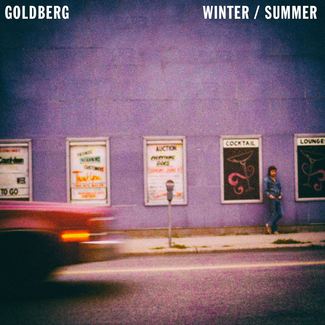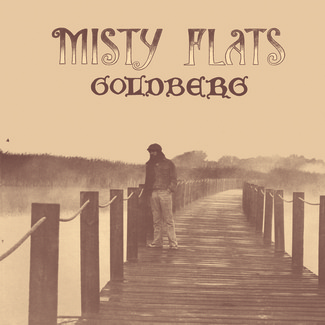
Goldberg
When The Night Comes
- First time available digitally
- Remastered from the original analog tapes
- Includes rare bonus single “Prince Of The City” b/w “Love Is The Law”
By 1978, Barry Thomas Goldberg’s music career had encountered one too many roadblocks. After recording his 1974 debut album Misty Flats with noted experimentalist Michael Yonkers, and losing the tapes to the 1975 follow-up album Winter/Summer, the final straw came when Goldberg lost his drummer, Bobby Z, to a local Minneapolis upstart named Prince. “He came to my shows and scouted the band out” Goldberg says, reflecting on the time. “One day Bobby said to me ‘I’m going to start playing with Prince.’ I was heartbroken.”
In a last ditch effort for greater exposure, Goldberg made a necessary jump from his home base of Minneapolis to New York City. “Every year I would go to New York and attempt the difficult effort of securing a recording contract” he says. “This time was different—there was no turning back—a deal or it was over for me.”
Over the next two years, Goldberg would bounce between studios in New York and Ann Arbor, recording new music when he wasn’t looking for a record deal. With financial support from a real estate mogul and production help from seasoned drummer Cliff Davies and producer Ric Browde, these sessions would yield his most ambitious album up to that point, When the Night Comes.
Sitting somewhere between the rustbelt rock sounds of Bruce Springsteen and the post-London Calling punk fusions of The Clash, When the Night Comes is a radical departure from the self-proclaimed “loner folk” style of Misty Flats and the power pop of Winter/Summer. Yet the charm of Goldberg’s songwriting style remained, through songs like slow-moving but powerful ballad “The Unforgiven”, stuttering rock strut “Rockefeller Beat”, and the raucous banger of the title track. As a sort of preamble to When The Night Comes, Goldberg released a single in 1982 titled “Prince of the City”, a moody synth-driven track about his resigned acceptance of Prince stealing his drummer. Goldberg reflects: “the song was an homage to his superb talents. I grudgingly admitted to myself, he was the best.”
Self-released in an edition of 500 records on Goldberg’s HIJ Records in 1983, When The Night Comes is an excellent rock album with plenty of glimpses into what could have been if Goldberg had gotten that record contract. The style may have been switched up but his songwriting craft remains as bright as ever.




